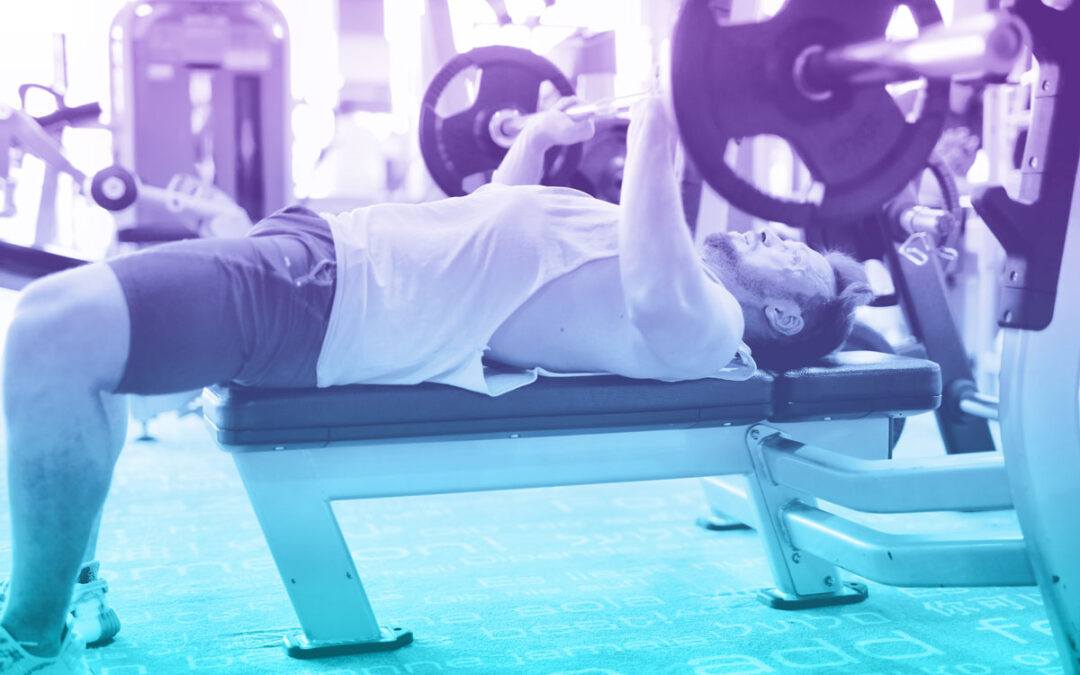Alcohol and Weightlifting
Health and fitness are some of the most valuable assets anyone can have. Keeping your body as strong as possible can go a long way in giving you the best quality of life you can have. Achieving this means working hard and understanding the things that will hold you back. Let’s look at the relationship between alcohol and weightlifting to understand how too much indulgence can slow you down.
How Alcohol Impacts the Muscles
Most people who take up weightlifting have a few goals in mind: gain muscle mass, improve muscle endurance and get stronger. Many weightlifters also hope to lose body fat and look leaner. These are all possible thanks to the way weightlifting affects the body. Unfortunately, alcohol can interrupt several important processes in the fitness process, making it harder to see results and maintain your health.

Muscle Recovery
When your muscles are repeatedly faced with the stress of doing hard work, they begin to adapt and grow. The muscles get bigger to handle heavier loads and tougher tasks. This is the basis of how weightlifting benefits you. Most people start to naturally lose muscle mass by the time they hit middle age, so working out can offset this deterioration.
This growth process works when your muscles are able to recover from the strain you put them under during a session. After each workout, you will usually be advised to get rest so that your muscles have a bit of time to heal and adapt. Your growth hormones will help send messages to the muscles that encourage them to change.
Alcohol can have a big impact on your hormones, including the ones that are responsible for healing your muscles. Many hormones are created and released during the different phases of sleep. Because alcohol can disrupt some of your normal sleep patterns, your body may not release as much of certain hormones as it should which reduces your muscle recovery and growth.
Muscle Building
Consuming alcohol can impact how your body processes proteins as well. Your body needs proteins to build healthy muscles, so this problem can take a big toll on your muscle growth. Even if you are weightlifting consistently and adding protein to your diet, you may not see the gains you want if there is too much alcohol in your diet.
The hormones that your body builds muscle with are also affected negatively by alcohol use. According to a study published in the National Library of Medicine, heavy alcohol consumption can decrease the levels of testosterone in the blood in men. Not only will this hurt athletic performance during activities such as weightlifting, but it can also negatively impact reproductive health.
Cortisol is also released as a result of consuming alcohol and it can be detrimental to building muscles via weightlifting. This stress hormone encourages your body to break down molecules to create energy in response to threats. That means it can block muscle growth by taking up resources that your muscles needed for their development. Over time, you may see muscle loss.
Weight Gain
Due to all the sugar in alcohol, it is often a common cause of weight gain. While people of all sizes can participate in weightlifting, an increase in body fat can hinder your efforts to get a good lifting session in. If you also do bodyweight exercises, gaining weight will make this harder.
Higher body weight will add stress to your joints, ligaments and bones, increasing the chance of getting hurt in the short term and limiting your weightlifting career in the long run.

How Alcohol Impacts Your Weightlifting Routine
There is another risk to consider when looking at alcohol and weightlifting, and that is the chance of cognitive impairment while actually working out. If a person chooses to drink before exercise, there is a greater possibility of injury.
Balance
Most people know that alcohol can affect a person’s balance. Just imagine a person who has had too much to drink swaying on their feet or struggling to walk in a straight line. Even smaller doses of alcohol can impact your equilibrium and your ability to maintain your posture.
Weightlifting often involves managing very heavy weights while standing, so it is important that you have good balance. If you find yourself tilting or swaying, you could hit yourself or someone else with a weight and cause a potentially serious injury.
Coordination
Lifting weights is a highly coordinated activity, especially when combined with other exercises such as squats or lunges. Much like the impact alcohol has on your balance, it can also make it harder to maintain your coordination. Reaction times are slowed and your brain’s processing speed is a bit slowed.
This makes it tougher to properly handle your weights and adjust to things that may go wrong as you lift. Without the proper grip and footing, you could increase the potential for hurting yourself.
Proper Form
For the best results from weightlifting, it is important to maintain good form throughout the entire workout. This ensures that you are properly working the correct muscle groups with each repetition and that you will get the muscle growth you are looking for.
Because of the problems alcohol causes with balance and coordination, keeping the right workout posture is a challenge when you have been drinking. It is hard to keep your body at the correct angles consistently during your weightlifting session. Every move requires a focus that you may not have even if you are slightly buzzed from alcohol.
Reduced Inhibitions
Weightlifting safety involves knowing your limits and being cautious as you progress through different weights and exercises. The results you get from a good regimen are the result of measured changes and controlled increases in difficulty. Your body responds to the increasing challenge with muscle growth and adaptation.
When you use alcohol, you may feel braver and bolder than normal. This can lead to taking chances and risks that you shouldn’t. During a weightlifting session, that may include trying to lift weights that are heavier than what you have tried before or trying a new weightlifting move or pose without the proper preparation or guidance.
This creates a very dangerous situation for everyone involved. The person lifting weights could be at risk of a crush injury. Think of a person who is trying to bench press more weight than they can handle. If the bar comes down on them, they could be badly hurt. Anyone trying to assist is also in a bad spot.
There is also the chance for muscle strains when you push yourself beyond your limits. Alcohol may inhibit your ability to consider the consequences of what you are doing and push yourself to a place you don’t need to be. A bad strain, sprain or broken bone could sideline you from weightlifting for a long time which could lead to muscle loss and cost you the progress you made during your routine.
Fatigue
Alcohol can negatively impact your weightlifting efforts by making you tired. Drinking too much can make you feel lethargic and drowsy. These are liabilities in a weightlifting situation where you need to be aware of what is happening around you and prepared to react if needed.
Being tired during your workout will also make you inclined to quit early. If you don’t put in the time you need, your workouts won’t be effective and you will have wasted effort weightlifting. You need to be able to put your full energy into what you’re doing to get the payoff you are looking for.
Knowing If Alcohol Will Be Harmful to Your Weightlifting Efforts
You may wonder how much drinking it takes before you see some of these problems when it comes to your weightlifting routine. There are different factors that will determine what types of effects you have to deal with.
Metabolism
Every person has a slightly different metabolism and this impacts how your body processes alcohol. Some people will find that they can drink a moderate amount and recover quite well by the next day, while others will drink the same amount and feel very unwell for several days. The difference is about their bodies and how they respond to alcohol as individuals.
Hydration
Weightlifters will also need to carefully evaluate how well they hydrate when they consider how alcohol could impact their fitness routines. Alcohol acts as a diuretic, encouraging your body to go through liquids more quickly. You could end up dehydrated if you are not careful. This will make it even harder to lift weights, and could put your health at risk if you exert yourself too much.
Timing
The timing of alcohol consumption plays a big role in how much it hurts your weightlifting and exercising efforts. A person who has a single drink at 8:00 PM and then goes to work out and 10:00 AM the next morning may not see much of a difference. A person who stayed up drinking all night will have a lot more problems in achieving a quality workout session the next day.
Drinking alcohol before or during a workout is also a cause for concern. Most people who commit to fitness usually restrict themselves to just water or sports drinks in the times surrounding a workout. They drink these beverages to keep hydrated and replenish lost nutrients as they go. Alcohol has high levels of sugar, which aren’t helpful for someone who is trying to weightlift.
Consuming alcohol right before or during a weightlifting session also makes a person vulnerable to the physical risks of balance problems, loss of coordination and improper form. In general, it is hard to have an effective workout when you are inebriated.
Frequency
The long-term results of alcohol and weightlifting will also depend on how often a person drinks. There are different results based on whether a person is an occasional drinker or indulges more frequently.
Regularly drinking large amounts of alcohol will start to impact your body in bigger ways over time. This is when you are more likely to see serious changes in the way your brain functions, which impacts your sleep patterns and hormone production. As we said, these issues will take a toll on your muscle recovery and growth, rendering your weightlifting much less effective.
Amount
How much a person drinks is obviously one of the biggest factors in the effect alcohol has on your body. Small doses of alcohol such as a single serving of wine or beer are usually not harmful for most people. As long as they are not consumed during a workout, they won’t have a huge impact on weightlifting or other exercise routines.
Things change as more alcohol is consumed. Consuming multiple drinks in one sitting will lead to mental and physical changes that can become harmful. Heavy drinkers may notice the most problems. A heavy drinker is generally considered a man who has more than 14 drinks in a week, or a woman who has more than 7 drinks in a week. Heavy drinking is often a sign that alcohol consumption is out of control.
Getting Help Reducing Alcohol Consumption
If you find yourself unable to cut back on alcohol for the good of your weightlifting ambitions, overall health goals or any other priority, it may be time to get help with reducing or eliminating your drinking. Alcohol use is so pervasive in daily life that it may not be easy to recognize that there is a problem with your use of this substance until it starts to interfere with other things.
Evaluate Your Priorities
A simple way to start looking at whether alcohol or another substance is becoming a problem in your life is to make a list of your priorities. Look at the things you love to do, the places you want to go, the people you want to spend time with and the things you want to achieve. As you go down the list, ask yourself how alcohol relates to each item.
If you notice that there is something that you can no longer do or can’t do as well because of your alcohol use, make a note of it. Ask yourself why and how that came about. For instance, if your passion for fitness has been neglected because alcohol makes it harder to lift weights or work out, that should be addressed.
You should recognize activities or relationships that seem to be based around alcohol as well. Any regular events that seem to require drinking as a prerequisite may not be healthy. This could include going to certain parties or clubs where alcohol is center stage. Take caution around friends and loved ones who always encourage you to drink, especially beyond your limits.
Ask yourself if you have given up anything because of alcohol. It could be as simple as putting money towards your drinking rather than other things that you would enjoy. This could also mean someone in your life has distanced themselves because of your drinking.
Consider Your Habits
Take the time to analyze how much alcohol has become part of your regular routine. Most of us have things we do every day; cook, work out, go to work, and watch TV. How often does alcohol appear during these activities? Are you drinking while doing things that maybe don’t call for the presence of alcohol? Is alcohol becoming a bigger part of your monthly spending?
Along the same lines, ask yourself if alcohol has become its own routine in your daily life. Maybe you find yourself having a drink every night to wind down as you go to bed or when you sit down to watch a movie. An occasional drink may not be a problem but if you’ve come to rely on alcohol to soothe you, it may be time to make some changes.
Taking Chances
When alcohol use leads to risky behaviors, it’s definitely time to seek out help and build different patterns. The risks could be weightlifting while intoxicated and putting yourself in harm’s way. Dangerous behavior can escalate when you take chances such as driving under the influence, cooking or using heat elements when you don’t have a clear mind or taking care of children while drinking.
Drinking in inappropriate scenarios can put your livelihood at risk as well. Using alcohol while working or when you are supposed to be responsible could lead you to lose whatever opportunities you have. Taking this type of chance for the sake of consuming alcohol is a key indicator that you do not have a good handle on your drinking and need assistance.
Addressing Unhealthy Alcohol Use
Alcohol is all around us in modern life. However, just because it’s common doesn’t mean it can’t be abused and become a problem in your life. When it begins to interfere with your physical health and well-being as well as the way you interact with others and prioritize the different aspects of your life, look into getting alcohol addiction treatment. Call us today at 888-330-2532 to learn about your options.
Sources:
- https://alcohol.org/effects/before-after-lifting-weights-cardio/
- https://www.mayoclinic.org/healthy-lifestyle/fitness/in-depth/strength-training/art-20046670
- https://www.mayoclinic.org/healthy-lifestyle/fitness/in-depth/weight-training/art-20047116
- https://health.clevelandclinic.org/how-can-you-avoid-muscle-loss-as-you-age/
- https://blog.insidetracker.com/how-does-alcohol-affect-your-athletic-performance
- https://www.ncbi.nlm.nih.gov/pmc/articles/PMC6761906/
- https://barbend.com/alcohol-affect-strength-training/
- https://www.health.harvard.edu/mind-and-mood/alcohol-and-fatigue


